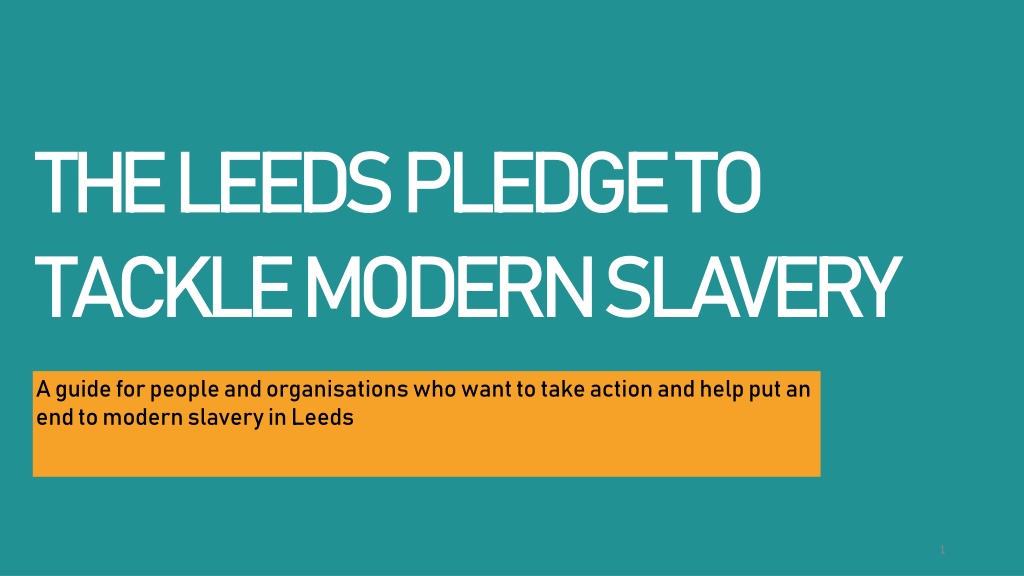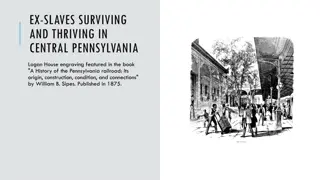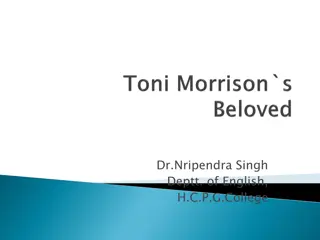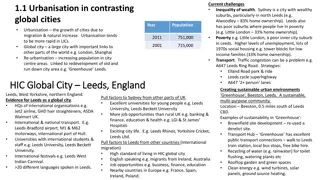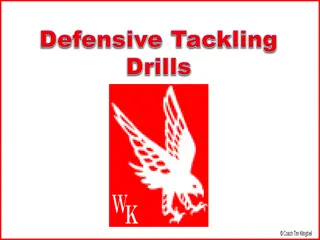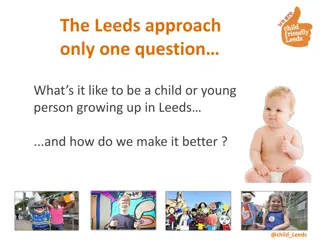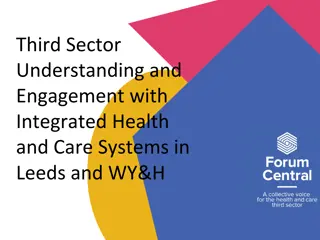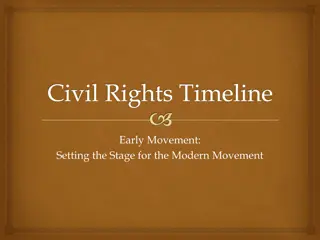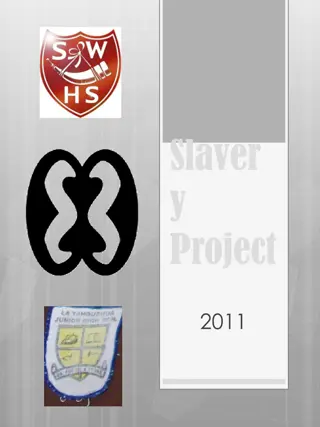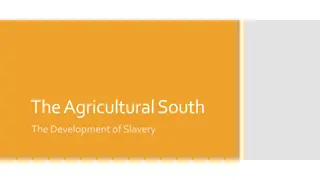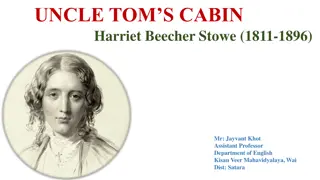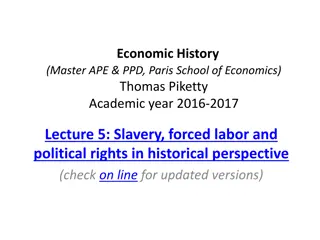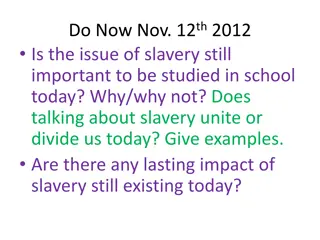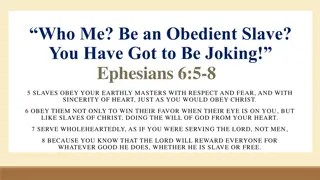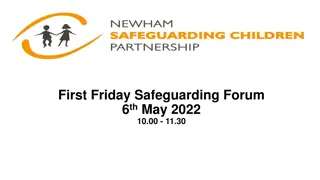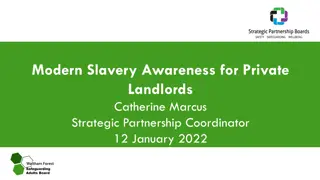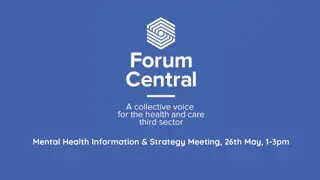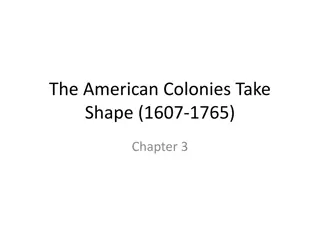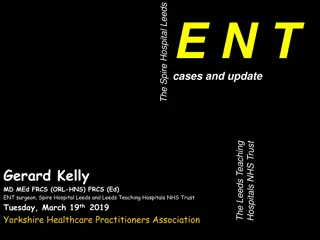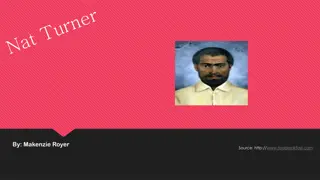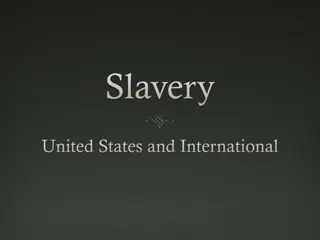Guide to Tackling Modern Slavery in Leeds
The Leeds Pledge to Tackle Modern Slavery offers a comprehensive guide for individuals and organizations in Leeds to combat modern slavery effectively. Launched on Anti-Slavery Day, this guide covers key sections like Recognize, Report, Support, Prevent, and Raise Awareness, providing information, resources, and actions to support the city's pledge. Regularly reviewed and updated, this guide aims to empower everyone in Leeds to play a role in eradicating modern slavery. Take action today to make a difference in the fight against this prevalent issue.
Download Presentation

Please find below an Image/Link to download the presentation.
The content on the website is provided AS IS for your information and personal use only. It may not be sold, licensed, or shared on other websites without obtaining consent from the author.If you encounter any issues during the download, it is possible that the publisher has removed the file from their server.
You are allowed to download the files provided on this website for personal or commercial use, subject to the condition that they are used lawfully. All files are the property of their respective owners.
The content on the website is provided AS IS for your information and personal use only. It may not be sold, licensed, or shared on other websites without obtaining consent from the author.
E N D
Presentation Transcript
THE LEEDS PLEDGE TO TACKLE MODERN SLAVERY A guide for people and organisations who want to take action and help put an end to modern slavery in Leeds 1
ABOUT THIS GUIDE The Leeds Pledge to Tackle Modern Slavery was launched on Anti-Slavery Day on the 18th October 2022. On this day, a number of public sector organisations in the city made a commitment to do all they can to eradicate modern slavery in Leeds. Every individual, business and organisation in the city is encouraged to support this pledge. This guides shares information about modern slavery and signposts readers to lots of different resources to help them to support the city s pledge. It was last updated in October 2022 and will be reviewed every year to make sure the content is still available and relevant. The guide is set out in five key sections: Recognise, Report, Support, Prevent and Raise Awareness. Each section contains information provided by the Leeds Modern Slavery partnership, links and web addresses for useful resources, and details of where to find out more information. We will next review the guide in October 2023 and welcome suggested content and ideas on how it could be improved. Please share feedback, or request the latest version, by emailing: SaferLeedsSafeguardingandDVTeam@leeds.gov.uk. 2
CONTENTS Recognise .................................................................................. Page 4 Be vigilant to the signs and indicators of modern slavery Report ........................................................................................ Page 9 If you suspect modern slavery, report it Support ....................................................................................... Page 16 Understand and respond to the needs of victims and survivors Prevent ........................................................................................ Page 20 Say no to modern slavery in your communities, businesses and supply chains Raise awareness ..................................................................... Page 26 Share what you know and help others to support the Leeds Pledge 3
RECOGNISE (1) Modern slavery could be happening anywhere: on your street, in your workplace, at your favourite restaurant, hotel or nail bar, at the hand car wash, building site, or farm that you pass every day. Victims could be adults or children, of any gender and any nationality. They may be trafficked from other countries or trafficked within the UK. They may be forced to work, have sex, get married or commit crime. This section explains what modern slavery is and some of the signs and indicators you may recognise when exploitation is happening. What is modern slavery? Modern slavery is an umbrella term used to describe human trafficking, slavery, forced labour and servitude. It includes slavery-like practices such as debt bondage, sale or exploitation of children, and forced marriage. While varied in nature, all forms of modern slavery involve one person depriving another person of their liberty in order to exploit them for personal or commercial gain. Modern slavery and human trafficking are criminal offences under the Modern Slavery Act 2015. 4
RECOGNISE (2) Labour exploitation, which can also be known as forced labour, bonded labour or debt bondage: this happens when a person is forced to work, often to pay off a debt and with little to no actual payment. Sexual exploitation, which can also be known as forced prostitution, forced sex work or, when in relation to children, child sexual exploitation: this describes a situation where an individual is forced to perform sexual acts for the personal or commercial gain of another. Domestic servitude, which can also be known as domestic slavery: this is when a person is forced to work within a home for little to no pay or sometimes for payment in kind such as food or accommodation. It may include cooking, cleaning, laundry and providing care for children and other family members. Forced marriage, which can also be known as servile marriage: this is when an individual is forced to marry without freely giving their consent, under pressure, force or coercion. Victims of forced marriage will often be subjected to further exploitation once married including forced labour, sexual exploitation and domestic servitude. Criminal exploitation, which can also be known as forced criminality: this is when a person is forced to engage in criminal activity such as cannabis cultivation, drug dealing, financial exploitation, forced begging, shoplifting and pickpocketing. 5
RECOGNISE (3) There is no one typical victim of modern slavery, but there are some general indicators which may suggest a person is being exploited. A person in a situation of modern slavery may: Physical appearance Show signs of physical abuse including untreated injuries and looking malnourished or unkempt. Be wearing inappropriate clothing for the weather or the type of work they are doing. Appear agitated, anxious or withdrawn. Restricted freedom Show signs they are unable to move freely or are dependent on another for travel, food and/or money. Have no identification or travel documents in their possession. Be vague or unclear about the address where they live. Have their communication controlled by another person who speaks on their behalf. Be dropped off/collected for work, usually very early or very late. 6
RECOGNISE (4) There is no one typical victim of modern slavery, but there are some general indicators which may suggest a person is being exploited. A person in a situation of modern slavery may: Isolation Be fearful or distrustful when speaking to strangers, especially those in a position of authority. Have relationships which don t seem right for instance, a child accompanied by an unidentified older adult. Have limited access to family or friends. Be unfamiliar with local language. Work Be vague or unclear about what type of work they have been doing. Be under the impression they have had to pay for a job in the UK. Be working excessive hours and/or consistently asking for extra shifts but have very little money. Be concerned they are in debt to another person for their accommodation, travel and/or job. 7
RECOGNISE (5) There is no one typical victim of modern slavery, but there are some general indicators which may suggest a person is being exploited. A person in a situation of modern slavery may: Children A child or young person may: Be found in areas away from home or go missing for unexplained periods of time. Be absent from school or disappear during school time. Have a change in their attitude and begin to display sexualised or violent behaviour or language. Become disinterested with school or their hobbies. Have money, gifts or items that they cannot afford and/or cannot explain. Have unexplained injuries and/or sexually transmitted infections. Appear withdrawn or afraid to talk, especially to those in authority. Give similar answers to other children or appear to have been coached in answering questions. For more on spotting the signs of modern slavery, visit hopeforjustice.com/spot-the-signs 8
REPORT (1) There are different ways to report concerns about modern slavery and this will depend on the context. For example, if you are at work, your company or organisation may have specific reporting procedures or statutory obligations that you need to comply with. The only wrong thing to do is to do nothing at all. Reporting as a general member of the public To report a concern as a member of the public, you should call the Modern Slavery Helpline on 08000 121 700 or file a report online at: www.modernslaveryhelpline.org/report. If you are worried about a child in Leeds, you can also contact Leeds Children s Social Work Service on 0113 222 4403 (Monday to Friday 9am to 5pm, except Wednesdays when they re open from 10am). Or you could talk to a professional who works with children and families, such as a health visitor, a social worker, a school nurse, or a teacher. In an emergency and/or if somebody is in immediate danger, you should dial 999. 9
REPORT (2) TAKE ACTION: Find out if your company or organisation has a specific reporting procedure for concerns about modern slavery and other safeguarding issues. Reporting as an employee If you work with the public your concern might be about a person or a group of people that you have come into contact with whilst doing your job. Your employer may have a procedure that you should follow and this procedure should ultimately ensure that concerns are reported to an organisation who can take action. For example: the Police, the local authority, the Gangmasters and Labour Abuse Authority, the Home Office or the Modern Slavery Helpline. The procedure might be different depending on if the person is an adult with care and support needs or a child (under the age of 18). If your employer does not have a procedure in place OR you are concerned that somebody in your workplace is a victim of modern slavery, you should: Report information and intelligence to the Modern Slavery Helpline on 08000 121 700 or online at www.modernslaveryhelpline.org/report, or Dial 999 if you feel it s an emergency. 10
REPORT (3) TAKE ACTION: Find out if your company or organisation has access to the Partnership Intelligence Portal and how to use it should you need to. If not, consider whether your organisation is eligible to create an account. The West Yorkshire Police Partnership Intelligence Portal Some organisations in the city and across the country have access to West Yorkshire Police s Partnership Intelligence Portal, sometimes called the PIP . These organisations include: local government, third sector, health, emergency services, education, criminal justice system, commercial businesses, utility companies, HMRC, Department for Work and Pensions, HM Prison Service, Trading Standards and more. If your organisation has access to the PIP, you can submit intelligence online and this will go directly to the Central Intelligence Unit at West Yorkshire Police: www.westyorkshire.police.uk/partnership-intelligence-portal. The PIP should be used to submit information that is routinely gathered by partners during the course of their normal duties. It should not be used to report crimes or in an emergency situation. 11
REPORT (4) TAKE ACTION: Find out if your company or organisation has a statutory duty to notify the Home Office or refer to the National Referral Mechanism if they suspect somebody is a victim of modern slavery. Notifying the Home Office Section 52 of the Modern Slavery Act 2015 makes it a legal requirement for specified authorities in England and Wales to notify the Home Office if they suspect that somebody is a victim of modern slavery. This is known as the duty to notify . There are two ways to fulfil this duty, which are: By referring the victim into the National Referral Mechanism (NRM). This should be done if the suspected victim is an adult who consents to being referred, or a child (children do not need to consent); or By completing a Duty to Notify form. This should be done if the suspected victim is an adult but does not consent to being referred into the NRM. Specified public authorities are police forces and the British Transport Police, the National Crime Agency, councils and the Gangmasters and Labour Abuse Authority. There are also additional, non-statutory organisations who can notify the Home Office and refer potential victims into the National Referral Mechanism. There is more information about the NRM on the next page. 12
REPORT (5) TAKE ACTION: If your organisation is a First Responder, find out what your agreed internal processes are in relation to the NRM and Duty to Notify. The National Referral Mechanism (NRM) The NRM is a victim identification and support process. It is designed to enable agencies including the police, UK Border Agency, local authorities, and non-governmental organisations to co-operate, to share information about potential child and adult modern slavery victims and facilitate their access to advice, accommodation and support. Only organisations who are First Responders can complete NRM forms. The digital referral form can be found on the HM Government website where you can also find guidance for completing the referral. Children or young people up to age 17 practitioners should immediately contact the Police on 101 or 999 depending on the urgency of the situation. They should also contact Children s Social Work Services Duty and Advice. An NRM form for potential child victims of modern slavery should be completed: the Police and Duty and Advice should agree who is best placed to do this. The forms must be completed for all children whether they consent or not. Adults aged 18 and over practitioners should seek the consent of the potential victim for a referral to the NRM. If consent is provided, the practitioner should contact the Police on 101 or 999, depending on the urgency of the situation. An NRM form for potential adult victims of modern slavery should be completed, or a Duty to Notify form if the potential victim does not consent to the NRM. 13
REPORT (6) There are also a number of apps designed to help people report modern slavery at the touch of a button. The Safe Car Washapp enables anybody who uses hand car washes to identify and report slavery. The app asks users a series of questions based on their visit to the car wash and then assesses the answers. If there is a high likelihood that modern slavery is occurring, users are invited to send a report to the Modern Slavery Helpline. The Farm Work Welfareis available in 8 languages and is designed to help both workers and employers to understand and promote workers rights. It also raises awareness of the signs of modern slavery amongst members of the public who live in rural areas. Like the Safe Car Wash app, it enables users to report to the Modern Slavery Helpline. 14
REPORT (7) There are also a number of apps designed to help people report modern slavery at the touch of a button. The Unseenapp provides a simple guide to recognising the signs of modern slavery and allows users to report concerns to the Modern Slavery Helpline in confidence. 15
SUPPORT (1) There are many members of the frontline workforce and community who may come into contact with potential victims of modern slavery. For example: the emergency services, health care practitioners, local government officers, charity workers, hospitality staff, taxi drivers, construction workers, community leaders and many more. This section aims to provide some basic practical guidance and signposting for those who may come into contact with potential victims. The impact of traumatic experience and fear In your role, it may be necessary to get a better understanding of the exploitation a person has potentially been subjected to. For example, if you are a housing officer, a social worker, a police officer or a charity worker. Victims of modern slavery have been through traumatic events and care should be taken not to retraumatise them. They may have difficulty in recalling facts and may not recognise themselves as victims. Exploiters often instil a fear of authorities into victims which can also mean they may be reluctant to talk to professionals about their experiences. It s important to remember that victims may not necessarily act or behave as you might expect. Children who have been sexually or criminally exploited, for example, won t always act like they are scared. They may also appear to be consenting to what is happening to them. It s important to remember that children cannot consent to being exploited. 16
SUPPORT (2) Palm Cove Society have also shared some key points to think about when asking potential victims for information about what has happened: Think choice and voice - it is their choice to tell you about their experiences and it needs to be their voice that tells you. Use open questions and phrases such as Tell me about what happened... Use a calm voice and be mindful not to undermine what the person is telling you when clarifying saliant points. Record accurate notes - the 5WHiP model can be helpful especially if you will be completing an NRM form: 1. 2. 3. 4. 5. Who has been involved? When did this happen? Where did this happen? What happened? Why did this happen? (This is often a difficult question but can help find out what led to a person being in the situation e.g. coercion, financial abuse, witchcraft, physical abuse etc.) Include partners - always establish what other agencies are already involved. 17
SUPPORT (3) There are lots of local and national organisations which have a specialist role in supporting victims and survivors of modern slavery as well organisations that support a range of people, including those who have been affected by modern slavery and human trafficking . The Human Trafficking Foundation have created a map of some of these services. If you can or do provide support to modern slavery victims and survivors, you can add your organisation to the map. When an adult potential victim is referred into the NRM and receives a positive reasonable grounds decision* they will be entitled to a range of support through the Modern Slavery Victim Care Contract. The Salvation Army currently hold this contract. Victims are assigned a support worker employed by The Salvation Army or one of their subcontractors. The role of this support worker is to advocate on the victim s behalf and help them access the support they are entitled to. Child potential victims will be supported by the local authority, their safeguarding partners and the Independent Child Trafficking Guardianship Service (ICTG). ICTGs are an independent source of advice for trafficked children who advocate for and act in the best interests of child victims. * This means the relevant competent authority has considered the referral and has determined that they suspect but cannot prove an individual is a victim of modern slavery. A conclusive grounds decision will follow. 18
SUPPORT (4) If you are working with a victim or potential victim of modern slavery and would like some help to find suitable support for them you can call: The Salvation Army Helpline 0800 808 3733 or The Modern Slavery Helpline 08000 121 700. Other services which work closely with the Leeds Modern Slavery Board include: Ashiana Hope for Justice Barnardo s Independent Child Trafficking Guardianship Service Justice and Care Palm Cove Society Basis Yorkshire The Children s Society 19
PREVENT (1) Everybody can help by being vigilant to the signs of modern slavery and reporting anything suspicious. This section of the guide provides some additional information about how businesses and organisations can prevent modern slavery from existing in their own business and their supply chains. Forced labour Businesses and organisations can make a difference by ensuring they don t profit from, or drive the demand for, forced labour. It is estimated that 24.9 million people around the world are trapped in forced labour on any given day. In the UK, labour exploitation is the most common type of modern slavery experienced by adult victims. The International Labour Organisation defines forced labour as: All work or service which is extracted from any person under the menace of any penalty for which said person has not offered him/herself voluntarily . This means that people are compelled to work, or prevented from leaving, by threat or coercion. Victims may have their wages withheld, be subjected to physical and sexual violence, have their ID documents withheld, have threats made against their family, be drunk or drugged, or be tied in with debt or accommodation. 20
PREVENT (2) TAKE ACTION: Watch this short video produced by the Gangmasters and Labour Abuse Authority. Could you spot the signs of modern slavery in the workplace? Modern slavery is hidden in many businesses across the UK. Some of the industries where labour exploitation is most commonly found include: Agriculture Cleaning Construction Warehousing and logistics Domestic work Manufacturing Food processing and packaging Beauty Hospitality Car washing The Gangmasters and Labour Abuse Authority have produced some industry profiles which look at these common industries in greater detail, as well as guide on how to spot the signs of labour exploitation. 21
PREVENT (3) Some businesses have a legal requirement to publish information about the steps they are taking to ensure modern slavery is not taking place in their supply chains. Section 54 of the Modern Slavery Act makes it a legal requirement for many commercial organisations with an annual turnover of 36 million or more to publish an annual modern slavery statement. Modern slavery statements must be updated annually and should describe what steps have been taken during the last financial year to deal with modern slavery risks in an organisation s supply chain and own business. (In 2020, the Government announced that this requirement will soon extent to some public sector organisations too. At the time of producing this guide, this requirement has not yet come into force but please check gov.uk for updates). 22
PREVENT (4) TAKE ACTION: Find out if your organisation has a statutory duty to publish a modern slavery statement, or if it publishes one voluntarily. A copy should be available on the organisation s website. Even if an organisation is not legally required to publish a statement, it may be useful to do so. Some businesses and organisations choose to voluntarily publish a modern slavery statement. Modern slavery statements can be a helpful tool for identifying risks and understanding and what more an organisation can do to address those risks. The Government guidance on modern slavery statements includes information and links to lots of resources to help get you started on, or further develop, your modern slavery statement and activity. You can also see the modern slavery statements which have been published on the UK Modern Slavery Statement Registry. Here, you can find out what similar organisations are doing to prevent modern slavery in their supply chains and business. 23
PREVENT (5) It s possible that modern slavery is happening on your business premises without you even knowing it about. That s why it s critical to know the signs and indicators, exercise due diligence and put preventative measures in place. Recruitment of workers Labour users play a critical role in preventing modern slavery; not only carrying a moral obligation to ensure the welfare of workers, but also liable to criminal sanctions if they fail to source labour from a licensed provider where required. The Gangmasters and Labour Abuse Authority (GLAA) works to protect vulnerable and exploited workers. If you use workers, the GLAA website provides information on how you can protect vulnerable workers and fulfil your legal obligations. Small and medium enterprises (SMEs) Leeds is home to 6000 SMEs. Stop the Traffik and the Shiva Foundation have produced a practical guide aimed specifically at SMEs, on how to mitigate the risks of modern slavery in their operations. 24
PREVENT (6) Your property or business premises could also be used by criminals to exploit victims of modern slavery. For example, if you work in hospitality or are a landlord. The hotel industry Criminals can and do use hotels to commit modern slavery offences, in particular the sexual and criminal exploitation of children and vulnerable adults. Leeds Safeguarding Children Partnership have a dedicated section on their website with information for hoteliers on how to prevent child exploitation, modern slavery and human trafficking from occurring on their premises. Landlords Many victims of modern slavery live in privately rented accommodation. Often, they will be housed there by exploiters and find themselves in overcrowded and dangerous living conditions. Some will be forced into criminal or sexual exploitation, being forced to sell sex, grow cannabis or deal drugs. Landlords who know this is happening and do not take steps to prevent it can be criminally liable. The Local Government Association have produced a Tackling Modern Slavery Guide for Landlords with information on how to reduce the risk. 25
RAISE AWARENESS (1) The more people understand what modern slavery is, how to recognise it, how to report it and how to prevent it, the sooner we will help put an end to modern slavery in Leeds and beyond. There are lots of ways to raise awareness with different people and groups. You could: Train staff in your workplace to recognise the signs and indicators that a colleague or service user may be being exploited Talk to vulnerable service users and communities about the tactics exploiters use to recruit victims Share information with landlords and tenants about how exploiters use properties for criminal activity Deliver workshops to young people about how gangs groom children and young people into criminal and sexual exploitation Display posters in your public buildings in different languages so victims know they can seek help from your organisation TAKE ACTION: Think about one thing you can do after reading this guide to raise awareness of modern slavery in your workplace or community. 26
RAISE AWARENESS (2) This section signposts to a range of resources that can be used to raise awareness of modern slavery amongst employees, suppliers, customers, service users and the general public. This is not an exhaustive list, but under each topic we have tried to include a mix of videos, posters, leaflets and infographics. Some are available in multiple languages. Modern Slavery and Human Trafficking One Minute Guide: Child trafficking (Leeds City Council) Infographic: Modern slavery in the UK (HM Government) Booklet: Pocketbook for Professionals (Safer Leeds) Poster: Modern slavery is closer than you think* (HM Government) Briefing: Modern slavery (HM Government) Briefing: FAQ on modern slavery (HM Government) Wallet card: Signs to spot victims* (HM Government) Document: Modern slavery awareness and victim identification guide (HM Government) Video: Free the unseen (Unseen and BT) Video: Modern slavery is closer than you think (UK Government) Leaflet: Support for victims of modern slavery* (HM Government) * available in additional languages 27
RAISE AWARENESS (3) Labour exploitation Leaflet: Spot the signs* (Gangmasters and Labour Abuse Authority) Leaflet: Workers Rights* (Gangmasters and Labour Abuse Authority) Poster: Not in my workplace (West Yorkshire Police) Poster: Slavery on your doorstep (CrimeStoppers) Poster: Employees in agriculture* (Stop the Traffik) Poster: Employees in nail salons* (Stop the Traffik) Poster: Know the signs (Homeless Link) Video: Jani and Izak s story - modern slavery in construction* (Stronger Together) Video: Daniel and Weronika s stories* (Stronger Together) Video: Modern slavery is real(Unseen UK) Video: Read the signs (CrimeStoppers) * available in additional languages 28
RAISE AWARENESS (4) Domestic servitude Leaflet: Do you see her? (West Yorkshire Combined Authority) Z-Card: Domestic Slavery (HM Government) Poster: Do you see her? (West Yorkshire Combined Authority) Poster: Signs you are being exploited* (Stop the Traffik) Animation: Aisha s story* (West Yorkshire Combined Authority) Video: Theresa s story (Unseen UK) Good Practice Points for Health Visitors (Institute of Health Visiting) * available in additional languages 29
RAISE AWARENESS (5) Criminal exploitation Poster: Signs you are being exploited* (Stop the Traffik) Poster: County lines* (Stop the Traffik) Poster: How to spot a cannabis farm (West Yorkshire Police) Leaflet: What is cuckooing? (West Yorkshire Police) Leaflet: Not my child? (West Yorkshire Police) Booklet: County lines (easy read) (West Yorkshire Police) One Minute Guide: Child Criminal Exploitation (Leeds City Council) * available in additional languages 30
RAISE AWARENESS (6) Sexual exploitation Z Card: Child Sexual Exploitation (West Yorkshire Police) Poster: Signs you are being exploited* (Stop the Traffik) Video: Elena s story (National Crime Agency) One Minute Guide: Child sexual exploitation (Leeds City Council) * available in additional languages 31
RAISE AWARENESS (7) Forced marriage Poster: I Don t (West Yorkshire Police) Poster: Forced marriage includes all forms of pressure (female) (HM Government) Poster: Forced marriage includes all forms of pressure (male) (HM Government) Video: Right to Choose (HM Government) Video: Layla s Forced Marriage Story (ChildLine) Campaign Partner Park (HM Government Forced Marriage Unit) Social Media Assets (Karma Nirvana) * available in additional languages 32
THANK YOU Thank you for taking time to look at this guide and for your commitment to take action to help tackle modern slavery in Leeds and beyond. We will next review the guide in October 2023 and welcome suggested content and ideas on how it could be improved. Please share feedback, or request the latest version, by emailing: SaferLeedsSafeguardingandDVTeam@leeds.gov.uk. With special thanks to the following organisations who have contributed to this work: Ashiana Leeds City Council Palm Cove Society West Yorkshire Integrated Care Board West Yorkshire Police and all of our partners on the Leeds Modern Slavery Board 33
